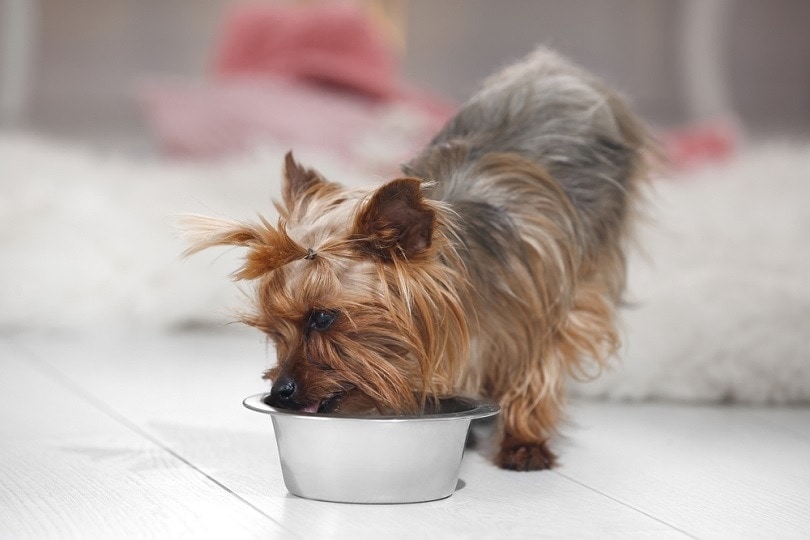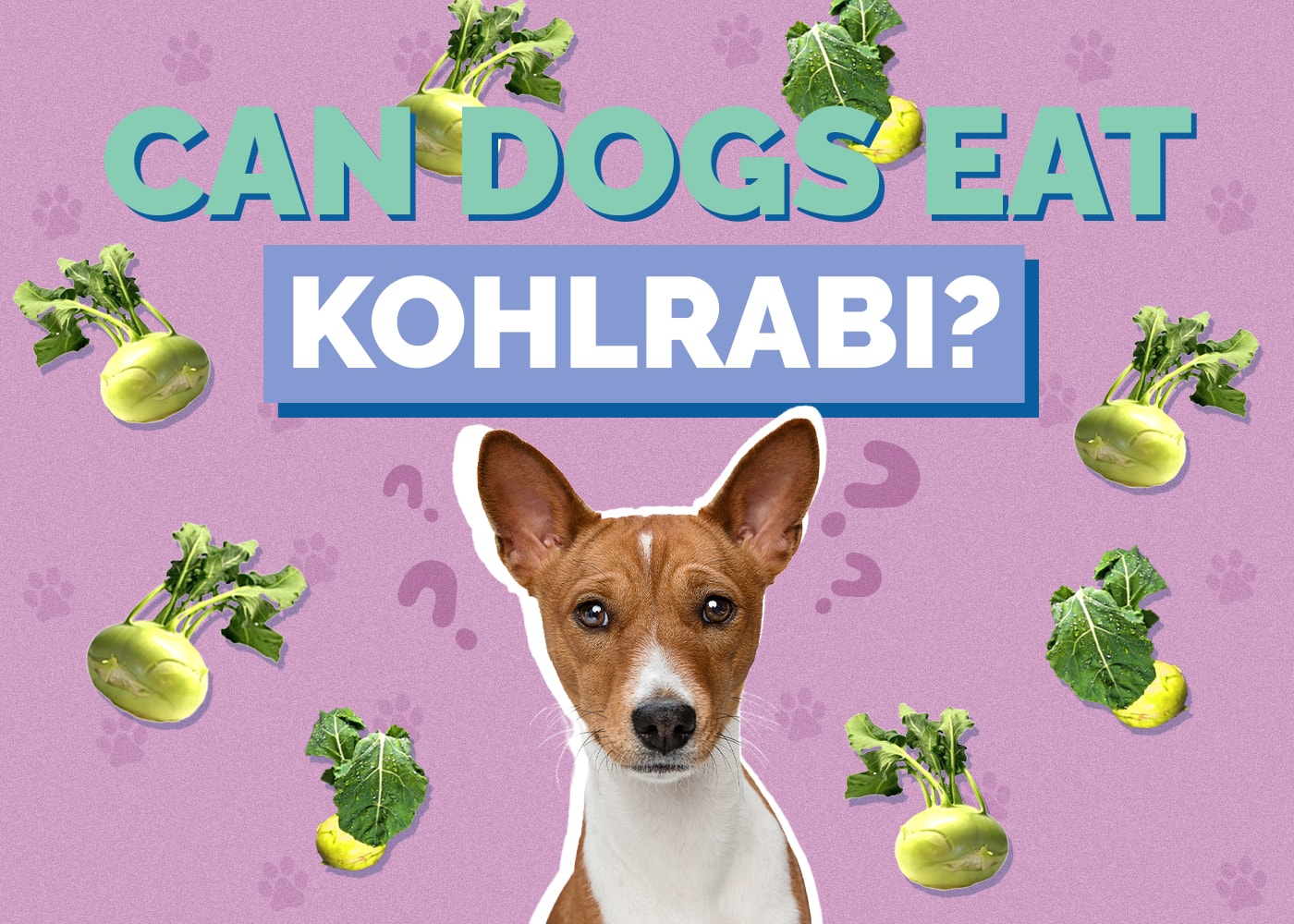Can Dogs Eat Alfredo Sauce? Vet-Approved Facts

Updated on
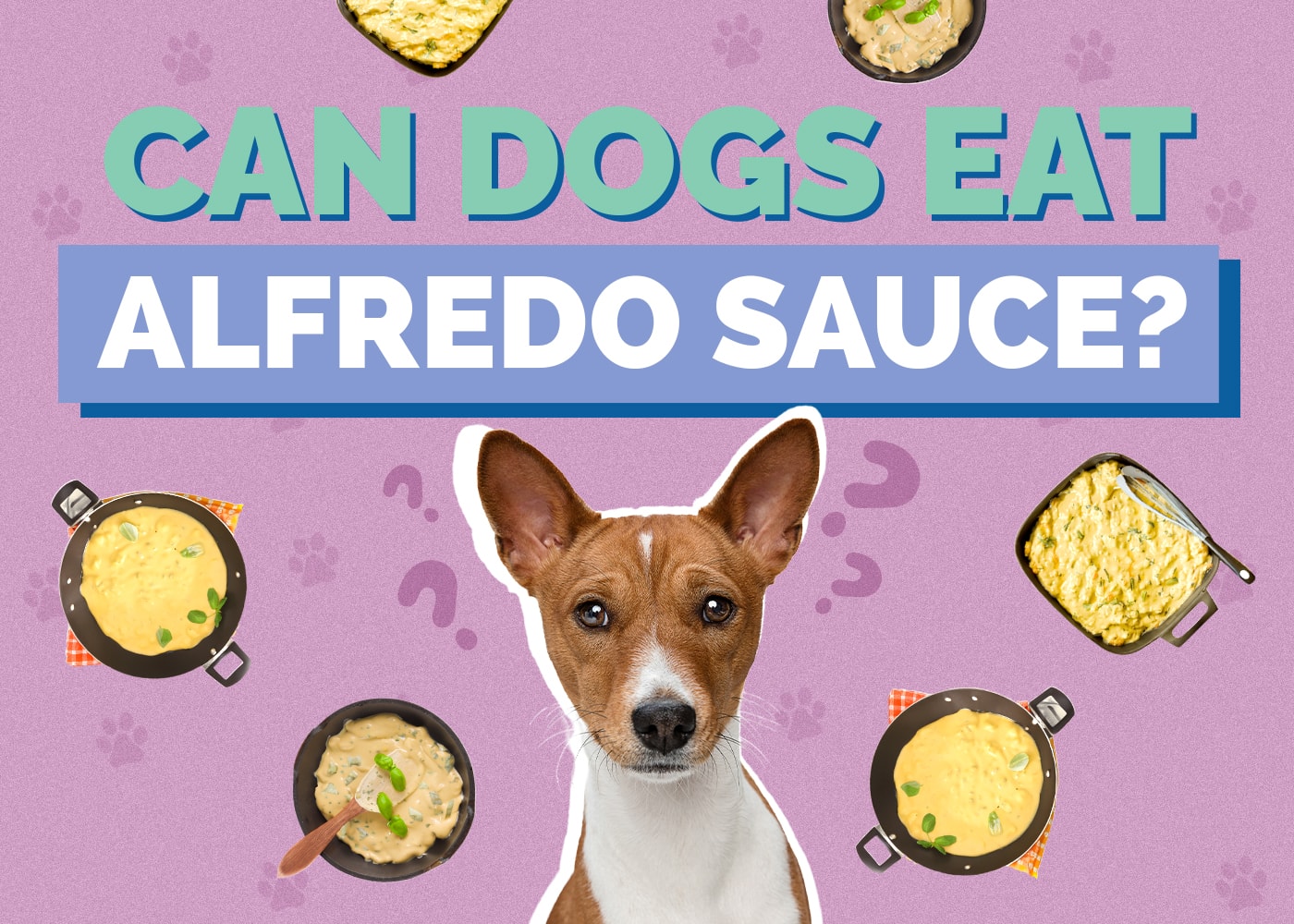
With its butter, cheese, and sometimes heavy cream, alfredo is a popular sauce for pasta. Though you may want to share your rich pasta dish with your dog, all that dairy can cause health problems. On top of that, alfredo may have toxic ingredients like garlic and onions that could cause serious health complications.
Can dogs eat Alfredo sauce? How healthy is it? No, dogs shouldn’t eat Alfredo sauce. It’s not only unhealthy, but it can cause poisoning with severe consequences.
What’s in Alfredo Sauce?
Traditional alfredo sauce is a rich white pasta sauce made with parmesan cheese, garlic, butter, and parsley. Non-traditional alfredo sauce may have additional ingredients, such as heavy cream, vegan dairy, or different herbs and spices.
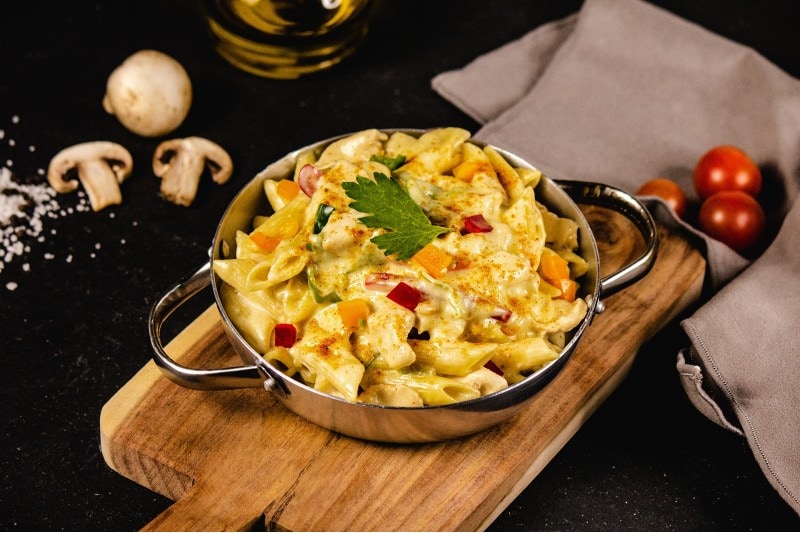
Can Dogs Eat Alfredo Sauce?
Alfredo sauce isn’t safe for your dog for many reasons. The fact that it contains garlic and/or onions is the main concern. Alfredo sauce usually contains garlic, whether in fresh or powder form. Garlic, onions, and other members of the Allium genus are toxic to dogs. They contain N-propyl disulfide among other toxic compounds, which can damage dog’s red blood cells, leading to severe anemia.
Garlic is the most potent of all Alliums, being approximately five times more potent than onions. Moreover, powdered garlic is the most dangerous form since it is more concentrated. Signs of anemia due to garlic poisoning may include weakness, lethargy, abdominal pain and pale or yellow mucous membranes. Though rarely fatal, dogs will need supportive care to overcome garlic toxicity.
The dairy base of the sauce is not toxic but still a cause of concern, as fatty foods can, on occasion, trigger pancreatitis in dogs. Pancreatitis involves inflammation of the pancreas and causes poor appetite, nausea, vomiting, abdominal pain, diarrhea, and lethargy.
Treatment of pancreatitis is supportive, including hospitalization, fluid therapy, especial nutrition, and medications to treat your dog’s signs and prevent further complications.

What Do I Do If My Dog Ate Alfredo Sauce?
Feeding your dog alfredo sauce isn’t recommended, as there are several ingredients that can cause health problems for your dog. So, if your dog snuck some of your alfredo pasta cooked with onion and/or garlic off your plate, you need to contact your vet immediately.
Let your vet know how much sauce your dog had and, if possible, the exact ingredients and amounts. With this information, your vet can calculate if your dog reached the toxic dose and can let you know what to do in that case.
Toxic doses of garlic and onion can cause destruction of your dog’s red blood cells resulting in severe anemia. Other problems include digestive signs such as poor appetite, vomiting, diarrhea, abdominal pain and drooling. The signs can take a few hours to a few days (up to a week) to develop. Therefore, if your dog had some alfredo sauce, the safest option is to contact your vet and check if it is necessary to take them over to make them sick in order to clear as much sauce or pasta as possible from your dog’s stomach.
This will depend on the amount of sauce your dog had and how long ago. Other treatment options include giving activated charcoal by mouth or hospitalizing your dog, depending on the severity of the poisoning.
If you are lucky enough that the alfredo sauce your dog had didn’t have any garlic or onion in it, you may still notice signs of digestive upset. The heavy cream and butter are not part of your dog’s normal diet and can trigger some gastrointestinal signs such as vomiting, diarrhea, lack of appetite and abdominal pain. Additionally, the amount of salt the sauce has is unlikely to cause any severe problems but can make your dog extremely thirsty, so watch out for this.
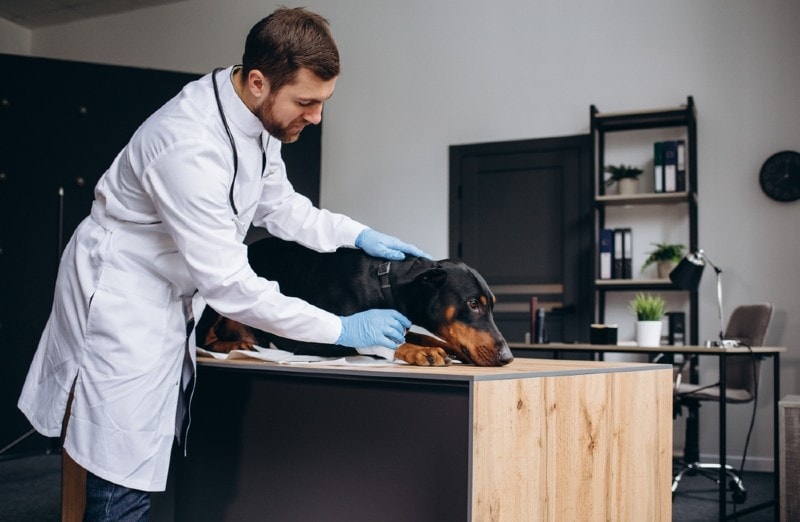
Conclusion
Alfredo sauce is a rich, fatty, and salty pasta sauce that’s great for us, but not so good for your dog. You must avoid feeding both traditional and nontraditional alfredo sauce to your dog in any amount. If your dog does get a hold of some alfredo sauce, contact your vet immediately to get clear instructions on how to proceed to avoid any problems with your canine friend.
See also:
- Can Dogs Eat Veal? Vet-Reviewed Facts & FAQ
- Can Dogs Eat Pasta? Vet-Approved Nutrition Facts & Safety Guide
Featured Image Credit: Engin Akyurt, Pexels



